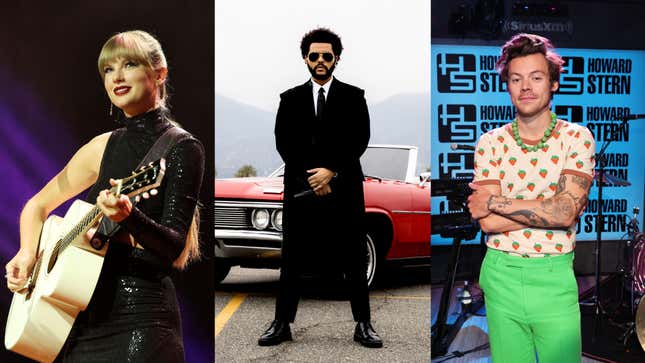
Universal Music Group, one of the largest labels in the music industry, is growing increasingly worried about artificial intelligence ripping off its artists. According to a recent report, UMG has asked streaming services like Spotify and Apple Music to limit AI’s access to music on different platforms in a bid to stop the tech scraping data from and training itself on copyrighted content.
As detailed in emails obtained by the Financial Times, UMG is concerned with how AI companies might be using music from the label’s roster of artists to train their bots to create music. As a result, UMG has asked streaming services like Spotify and Apple Music to block AI’s access to those platforms. UMG is one of the Big Three music corporations and has over one-third of the music industry’s market share as of the end of 2022. UMG represents artists from the massive pop powerhouses of Taylor Swift and Harry Styles to smaller indie acts like CHVRCHES and Clairo.
“We will not hesitate to take steps to protect our rights and those of our artists,” UMG wrote to unspecified streaming services in March, according to the FT. Universal Music Group did not immediately return Gizmodo’s request for comment.
As the AI boom continues, there has been a substantial rise in AI-generated art, with Adobe’s Firefly, Runway’s Gen-2, and the infamous DALL-E 2 from OpenAI demonstrating how easy it can be for a computer to create video and images from text. The issue with these generators is their clear tendency to simply lift pre-existing (often copyrighted) material from other sources, only to Frankenstein it into an “original” piece of art. This ethical dilemma came to a head last month as the U.S. Copyright Office said that AI art can be copyrighted only if a human creator can prove that they put a substantial amount of effort into it, The Register reports. AI bots like ChatGPT have little problem generating text.
While there’s been plenty of groundwork laid for the case against AI-generated video and images, AI-generated music is still an emerging application of the tech. Google has created an AI that can generate music from a text description—much the way DALL-E 2 can—but says it won’t release the bot.
Want to know more about AI, chatbots, and the future of machine learning? Check out our full coverage of artificial intelligence, or browse our guides to The Best Free AI Art Generators, The Best ChatGPT Alternatives, and Everything We Know About OpenAI’s ChatGPT.